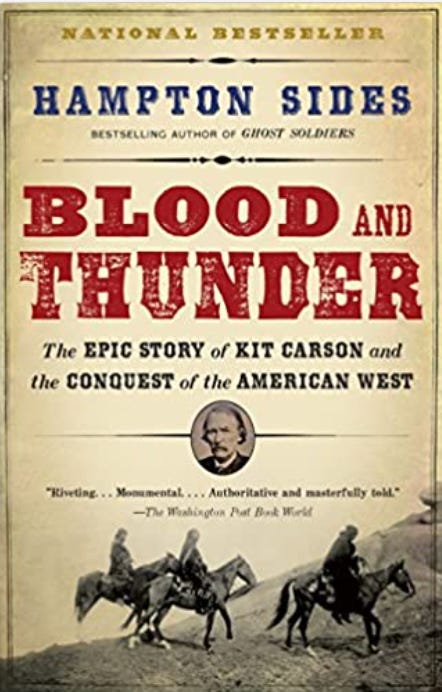Otherness and Greatness
Lessons from a Hodge-Podge of Biographies
Recently, I read a hodge-podge of biographies: two cooks, an ancient philosopher, the last Viceroy of British India, a social and religious activist, a frontiersman, and a trial attorney. The books:
The Greatest Empire: A Life of Seneca, by Emily Wilson
Blood and Thunder, by Hampton Sides (Kit Carson)
The Man to See, by Evan Thomas (Edward Bennett Williams)
32 Yolks by Eric Ripert
Mountbatten by Philip Ziegler
On the surface, they appear to have nothing in common, except lives intriguing enough to have biographies written about or by them.
However, a chief theme emerged from each biography: each of the subjects played the role of an outsider, in reality or in his own mind. They viewed themselves as outsiders. Outsiders to what? To the dominant society at large, to an important sub-society in their lives, to completely different cultures. And I began to wonder whether their greatness may have derived in part from their distance from greater society.
To give a few examples, Kit Carson seemed more comfortable in the company of Native Americans than whites. He married a Native American woman, and genuinely preferred the life of a Natives to the one offered by his birth culture. Edward Bennett Williams, a renowned trial attorney and owner of the Baltimore Orioles, craved to become a Washington political insider. But his Catholic faith limited his reach until the time of John F. Kennedy. Even then, he appears to have thought himself more an insider than he really was during the Johnson and Carter presidencies. Eric Ripert, a Frenchman who became famous in America as a chef. In his childhood he vividly paints the portrait -- he thought and felt differently than other children his age. He even felt like an outsider inside his own family after his parents’s divorce and his mother’s remarriage to a bully. And Lord Mountbatten -- born a royal, but not an especially high-ranking one. The Royal Navy did not look especially favorably upon his royal lineage. And as Supreme Commander, South East Asia, Viceroy of British India, and Governor-General of India following independence and the partition, he became immersed in cultures extremely different from his own.
“Outsiderness” alone does not a great man make. Mountbatten easily could have proven a snobbish, condescending British official -- and lived quite similarly to officials living in London. It is difficult (and as I type, impossible for me) to recall one truly great man who truly lived a pure outsider life. No, I pondered, the even more compelling feature of these men was the melding of a significant outsider strain with an ability to work supremely well inside the larger society. Seneca, the philosopher navigating the uncertainties of the Roman imperial court, amidst some unsavory characters. Malcolm X, the reformed druggie and criminal, inspiring confrontation not simply against mainstream white society, but also conventional African-American thought on how to make progress toward equality in America. Bourdain, a druggie and second-rate chef, climbing to respectability at Les Halles, and using the force of his writing to blaze his path to prominence. His writing was the “otherness,” but his subject matter -- cooking, chefs, the hospitality life -- became a fashionable topic in mainstream American and even global society.
Now, of course, the above simply notes a phenomenon. It does not, and I cannot, state whether this melding constitutes the defining cause of their greatness, contributed mildly to their greatness, or was simply present and correlates to their greatness. This is biography; this is history; this is not science. Perhaps here we confront the limits of biographical art.
That said, I feel inclined to suggest a preponderant or at least significant weight to “otherness” and to the melding of “otherness” and dominant society in an evaluation of greatness. To live a memorable life, must not a man or woman approach the prism of his or her times, and tilt it a bit differently than the rest of the world? Must a man not have an inner agitation to create a different world than the one which confronts him? And does not every great man have a touch of the evangelist, to infect the world with his enthusiasm for what might be? To tilt the prism, a man must have that detachment. And yet the evangelist always exists within a broader, pre-living, culture.
—
(Amazon Affiliate links. As an Amazon Associate I earn from qualifying purchases.)








